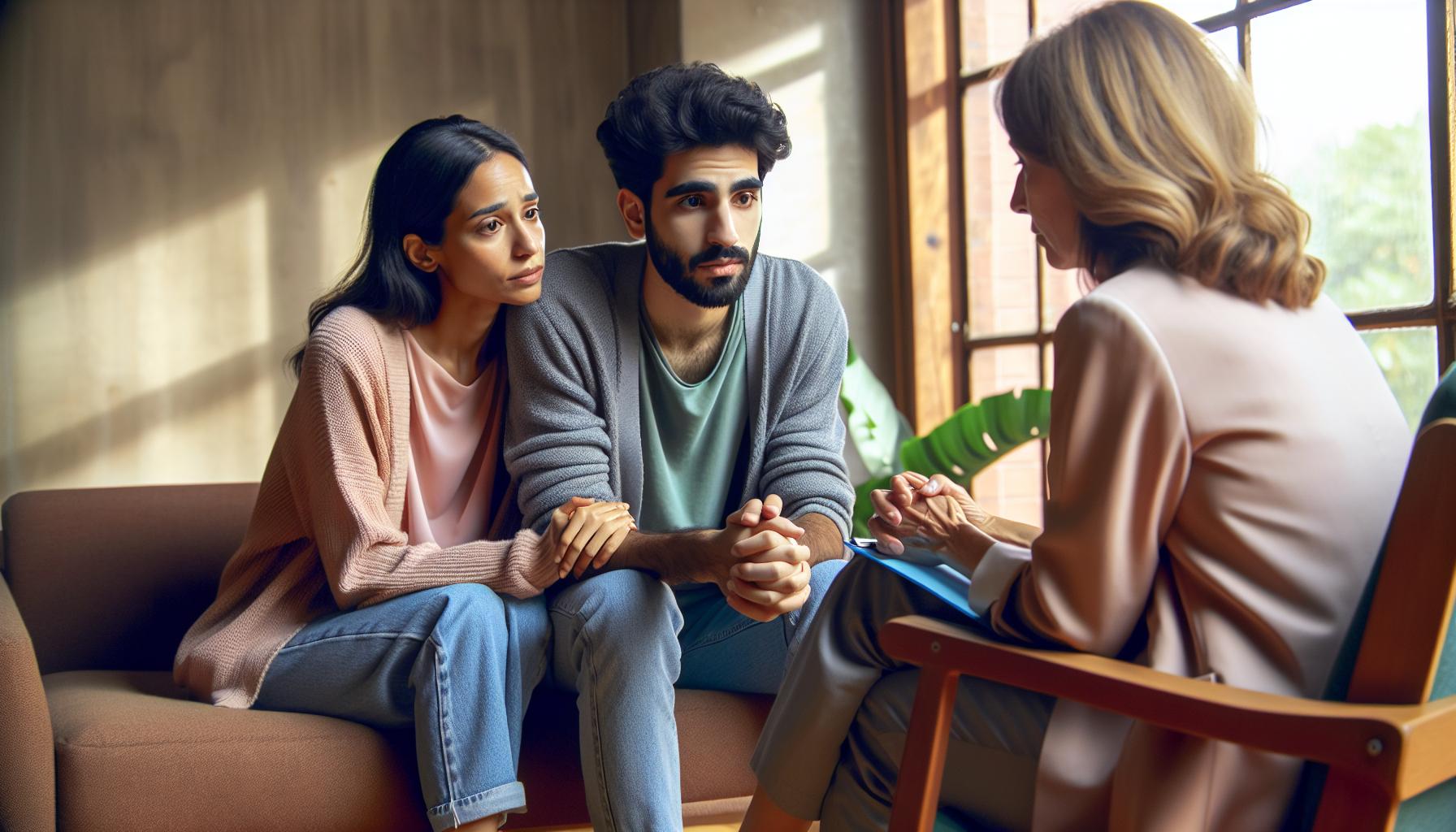Navigating the wild world of relationships can feel like trying to solve a Rubik’s Cube blindfolded. Whether it’s communication breakdowns or the infamous “we need to talk” moments, couples in Los Angeles often find themselves searching for that guiding light. Enter relationship counseling—a safe space where lovebirds can untangle their emotional knots with a sprinkle of humor and a dash of professionalism.
Overview of Relationship Counseling Los Angeles
Relationship counseling in Los Angeles offers couples essential support for navigating complex emotional challenges. Professionals in this field specialize in fostering open communication between partners, addressing issues like trust, intimacy, and conflict resolution. A variety of counseling approaches exist, including cognitive-behavioral therapy and emotion-focused therapy, tailored to suit unique relationship dynamics.
Local counseling centers provide a welcoming environment for couples. Experienced therapists encourage honest discussions and facilitate productive conversations. Flexible scheduling, including in-person and virtual sessions, accommodates busy lives in the city.
Couples often report significant improvements after attending counseling. They experience enhanced understanding of one another, increased emotional connection, and better coping strategies for handling conflicts. Many practitioners emphasize the importance of collaboration, encouraging both partners to participate actively in the process.
Additionally, Los Angeles boasts multiple resources for couples in distress. Support groups, workshops, and online forums help extend the reach of relationship counseling. The city’s diverse cultural landscape influences therapy practices, with therapists drawing on various cultural perspectives to address specific needs of couples.
Finding the right therapist plays a crucial role in the success of relationship counseling. Many professionals offer initial consultations, allowing couples to gauge compatibility. Checking credentials and reading reviews enhances the process of selecting a qualified counselor. Prioritizing both effective communication and professional support can lead to healthier, more fulfilling relationships.
Types of Relationship Counseling

Relationship counseling options vary, addressing diverse needs and situations. Exploring the different types can help couples choose the best fit for their circumstances.
Individual Counseling
Individual counseling targets personal issues affecting the relationship. Many individuals seek this form of therapy to gain insights into their emotions and behaviors. Therapists assist clients in developing coping strategies and improving self-awareness. This approach empowers individuals to contribute positively to their partnerships. Understanding one’s own challenges often leads to healthier interactions with partners.
Couples Counseling
Couples counseling focuses on improving partners’ communication and emotional connection. In this setting, both individuals work together under the guidance of a trained therapist. Sessions create a safe space for discussing sensitive topics and exploring unresolved conflicts. Techniques such as active listening and conflict resolution strategies play a crucial role in sessions. Many couples discover that mutual understanding enhances their emotional intimacy and trust.
Family Counseling
Family counseling addresses relationship dynamics within the family unit. It brings together individuals who play vital roles in each other’s lives, allowing for open discussions. Therapists guide families in identifying communication barriers and navigating conflicts. This type of counseling encourages collaboration and fosters understanding among all members. Improved family relationships often lead to a stronger and more supportive environment.
Benefits of Relationship Counseling

Relationship counseling offers various advantages that can significantly enhance couples’ interactions and overall connection. Couples in Los Angeles often experience improvements in communication, conflict resolution, and emotional support.
Improved Communication
Counseling fosters open dialogue between partners. Through guided conversations, individuals learn effective communication techniques. Therapists help couples identify barriers to expressing feelings, enabling them to voice their thoughts in a constructive manner. As a result, partners develop active listening skills, leading to deeper understanding. Improved communication often results in fewer misunderstandings and encourages transparency, which strengthens bonds.
Conflict Resolution
Relationship counseling supports the development of healthy conflict resolution strategies. Therapists introduce techniques that guide couples through disagreements. By utilizing role-playing or reflective exercises, partners gain insight into each other’s perspectives. Conflict no longer becomes a destructive force; instead, it transforms into an opportunity for growth. Structured sessions promote collaboration, helping couples discover solutions that satisfy both parties, thus fostering a sense of teamwork.
Emotional Support
Counseling provides a safe space for emotional exploration. Couples receive validation and empathy from trained professionals. This supportive environment encourages vulnerability, allowing individuals to express feelings they may have kept hidden. Emotional support minimizes feelings of isolation, reinforcing connections between partners. Couples often exit sessions with a stronger sense of connection and greater resilience in facing challenges together.
Finding the Right Counselor in Los Angeles
Selecting the appropriate counselor in Los Angeles plays a crucial role in the success of relationship counseling. Couples should prioritize finding a professional who meets their specific needs and preferences.
Credentials and Experience
Credentials signify a counselor’s qualifications. Look for therapists licensed by the California Board of Behavioral Sciences. Educational backgrounds often include degrees in psychology, social work, or marriage and family therapy. Experience matters too; seasoned professionals typically handle diverse relationship issues, equipping them to provide tailored support. Checking for additional certifications, such as in cognitive-behavioral therapy, enhances credibility. Initial consultations allow couples to assess skill levels and find the right fit. Engaging with a counselor possessing both credentials and experience builds confidence in the path toward healthier relationships.
Counseling Approaches and Techniques
Counseling approaches shape the support couples receive. Various techniques address unique relationship dynamics. Emotion-focused therapy emphasizes emotional connection and healing for partners. Cognitive-behavioral therapy focuses on altering negative thought patterns and behaviors that hinder growth. Additionally, some counselors incorporate mindfulness practices to foster awareness and presence during discussions. Understanding these techniques helps couples select the best approach for their needs. During initial meetings, discussing viable options allows them to make informed choices about their counseling journey. With tailored techniques, couples can enhance their engagement and commitment to the process.
Conclusion
Navigating relationships in Los Angeles can be challenging but relationship counseling offers a beacon of hope. Couples can find the support they need to enhance communication and rebuild emotional connections. With various counseling types available tailored to individual needs, partners can tackle their unique challenges head-on.
The right counselor can make all the difference in fostering a safe and productive environment. By prioritizing compatibility and professional expertise, couples are better equipped to face their struggles together. Ultimately, relationship counseling not only addresses immediate concerns but also lays the foundation for healthier and more fulfilling partnerships.





